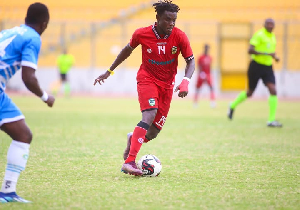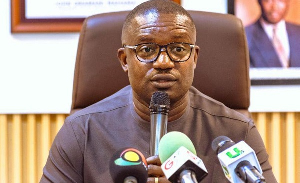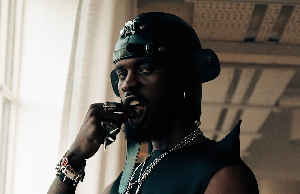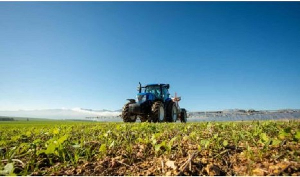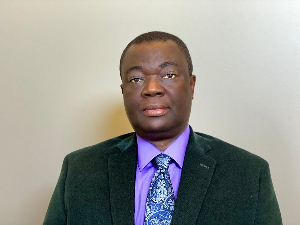A GNA feature, by Hannah Asomaning
Accra, Feb. 28, GNA - People understand the word development in different ways. While some people would term availability of pleasant goodies and services to enjoy on daily basis as progress and development, others may think that the availability of more physical infrastructure in a particular country is development. In other words development could also mean that a country has very good roads, 24-hour supply of electricity and water, discovery of oil culminating in a comfortable livelihood.
Yet others may see development as absence of corruption in a country where there is good governance and democracy. Whatever one's understanding of development is, be it from the opposition party or a ruling party, the general aspiration is to develop the country.
It may not be totally wrong then to say that every politician, no matter the political party he or she belongs to, prioritizes development on his or her agenda, especially when seeking to be elected. Journalists have been defined as agents of social change and promoters of public forums in which it is possible to discuss issues considered beneficial to the wider public.
The media in any given country, thus, obviously has a role to play in the achievement of the development agenda. Unfortunately, sometimes the media in Ghana would rather focus more on what politician A or B has said rather than writing on developmental issues like malaria, guinea worm or poverty.
A research report by the Centre for Media Studies Research and Networking in Dar Es Salaam, on the topic; "Rural Reporting" in Tanzania states that the journalist's job on a development newsbeat is to critically examine, evaluate and report the relevance of a development project to national and local needs, the difference between a planned scheme and its actual implementation, and the difference between its impact on people as claimed by government officials and as it actually is.
A journalist will need to find how national, social and economic policies and political decisions affect women and men, and who are rendered more vulnerable by these decision making processes and policy implementation and if they address both strategic and practical needs/interests of both men and women.
Let us consider this situation. Some people were travelling from Tamale, the Northern Region capital to Techiman in the Brong Ahafo Region on a Metro Mass Transit (MMT) bus. When they got to a certain village, a barrier had been mounted and people from the Wildlife Division came to inspect the bus.
One of the officials opened all the sacks of passengers packed in the boot of the bus and found in one passenger's sack roasted bush meat. He took all the meat with an cynical smile. The woman followed him to a room perhaps to beg him. Finally he gave the meat back to the woman perhaps after taking a bribe.
One passenger said aloud: "If you want to protect wildlife why not do it in the forest where people go to hunt these animals." Another scenario: The fare from Techiman to Kumasi in the Ashanti Region on the Metro Mass Bus is GHc2. However in the evenings some of the drivers would charge double the fare and would not issue a receipt to any passenger no matter the number of people on board.
When a passenger decides to demand a receipt for the fare, people in the bus would shout: "We are in a hurry, what is GHc 2, if you can't pay get down." One is thus forced to be silent in the full glare of corruption.
Can one dare to ask: "What does the media in this country do or say about these situations and many more?"
Some likely answers would be "It will not be interesting to the public"; "Our newspapers would not be bought", "These are not 'hot' issues".
People would want to read about a politician who has raped a 13 year-old girl or some big money that has been embezzled by a Minister. Yes, that is news but why don't we nib such actions in the bud? How different is a politicians who embezzled money from the MMT bus driver who charges one person double fare? To discuss the agenda setting role of the media would start a whole new debate but why not get more interested in reporting on issues that impede the development that we all yearn for as a nation. The media has really done well in how far we have brought the country, especially in terms of political dynamics but a lot more remains to be done.
Many have argued that the achievement of the Millennium Development Goals (MDGs) in 2015 is quite impossible looking at the state of most African states.
As an Indian media expert, Aman Namra will put it: "Media has no positive thinking and makes no effort to give the society a new direction. Nor does it underline the successes of the society... If media doesn't define and perform its role and social responsibility, it will have to face people's questions and ire in the future. It will lose its credibility as the Fourth Estate, the vigilant eye of society. "Development journalism...focuses on the needs of the poor, the deprived, the marginalized and emphasizes their effective participation in development planning. Or to say it elaborately, this kind of journalism motivates the active participation of the affected people and advocating for their interests, in place of the views of the policy makers and the planners."
The media has a role to play in the achievement of the MDGs if only we would decide to focus on development communication. The clarion call for journalists, especially in Africa and other developing countries, now, is turning to development journalism.
Opinions of Thursday, 28 February 2008
Columnist: GNA




